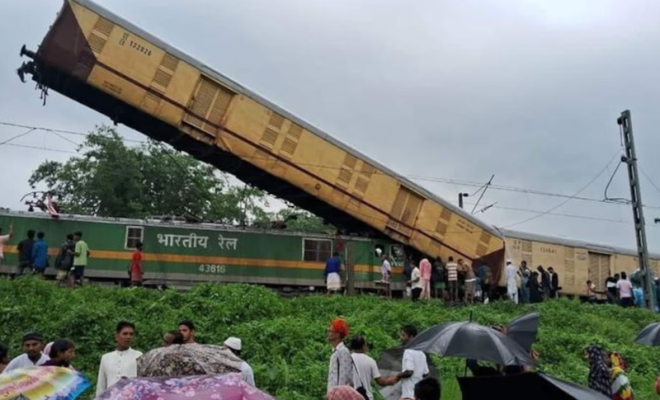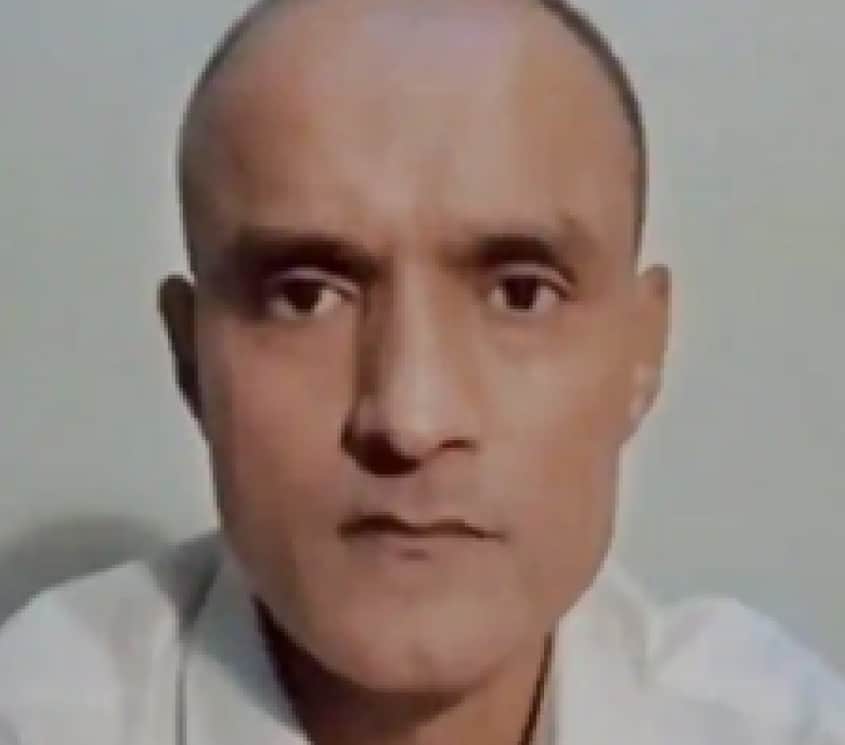Kanchanjunga Express Collision: 9 Dead, 41 Injured in West Bengal Train Accident

The Kanchanjunga Express was on its journey from Agartala in Tripura to Sealdah in Kolkata when a goods train collided with it from behind near Rangapani station, close to New Jalpaiguri, early Monday morning. The crash resulted in the tragic deaths of nine people and left 41 others injured. According to the initial emerging reports the fault is of human and signal failure.
According to a preliminary report by the Railway Board, the goods train was operating under a defective automatic signaling system and was traveling above the speed limits when it hit the Kanchanjunga Express.
According to the Railway protocol when the automatic signaling system fails, a written authority ‘TA 912’ must be issued. This allows train drivers to pass all red signals due to the signaling defect. Both the Kanchanjunga Express and the goods train had been issued TA 912.
Under TA 912, drivers are required to stop for one minute at each defective signal and proceed at a maximum speed of 10 km/h. They must also maintain a 150-meter gap from the preceding train to ensure safe stopping distance. However, the goods train driver violated these critical conditions.
The Kanchanjunga Express had passed nine automatic signals with TA 912 and had stopped after crossing the ninth signal, awaiting fresh clearance to proceed further.
Read More: Famous Indian Restaurants Violating Food Standards: A Shocking Reality
The Railway Board stated that the driver of the goods train had been authorized to cross all red signals between Rangapani and Chattarhat railway stations due to the defective automatic signaling system. However, the train was traveling faster than the permissible limit. The goods train driver had been given TA 912 by the station master of Rangapani, which allowed the train to pass nine red signals. This was necessary because the automatic signaling system had been malfunctioning since 5:50 am on the day of the accident.
The goods train, GFCJ, left Rangapani at 8:42 am and collided with the stationary Kanchanjunga Express at 8:55 am.
After this accident the guard’s coach , two parcel coaches, and a general seating coach of the passenger train derailed. The goods train was not at the appropiate speed this lead to the crash.
In contrast, the goods train’s driver exceeded the permissible limits and crashed into the passenger train from behind.
The TA 912 authority letter indicated that the automatic signaling system had failed, allowing the driver to pass all automatic signals between Rangapani and Chattarhat, regardless of whether they were red or caution signals. Normally, a train encountering a red signal should stop for one minute during the day and two minutes at night, proceeding with extreme caution at a speed not exceeding 15 km/h in good visibility and 10 km/h in poor visibility.
Rescue operations started late afternoon. Several injured passengers were treated at the North Bengal Medical College and Hospital, with 41 remaining hospitalized, including nine in critical condition.
The Commissioner of Railway Safety (CRS) has initiated a probe into the cause of the accident. Railway Minister Ashwini Vaishnaw visited the site, overseeing relief operations and announcing compensation for the victims’ families: ₹10 lakh for the families of those who died, ₹2.5 lakh for the grievously injured, and ₹50,000 for those with minor injuries.
Prime Minister Narendra Modi expressed his condolences to the victims and prayed for the recovery of those injured. “The railway accident in West Bengal is saddening. Condolences to those who lost their loved ones. I pray that the injured recover at the earliest. Spoke to officials and took stock of the situation. Rescue operations are underway to assist the affected. The Railways Minister Shri Ashwini Vaishnaw Ji is on the way to the site of the mishap as well,” PM Modi posted on X.
West Bengal Chief Minister Mamata Banerjee criticized the Railway Ministry for neglecting passenger safety and failing to effectively implement the anti-collision system. She accused the railways of focusing more on fare hikes than on improving safety measures. “The railways have become totally parentless. Though the ministry is there, the old glory is missing. Only beautification is being done, but they do not care about passenger amenities. They are only keen on hiking fares,” she said. “You will only see them talk big. They also do not take care of the railway officers, technical, safety, and security personnel. I am with the railway employees and officers.”
Governor CV Ananda Bose urged that the focus should be on treating the victims rather than engaging in blame games.



